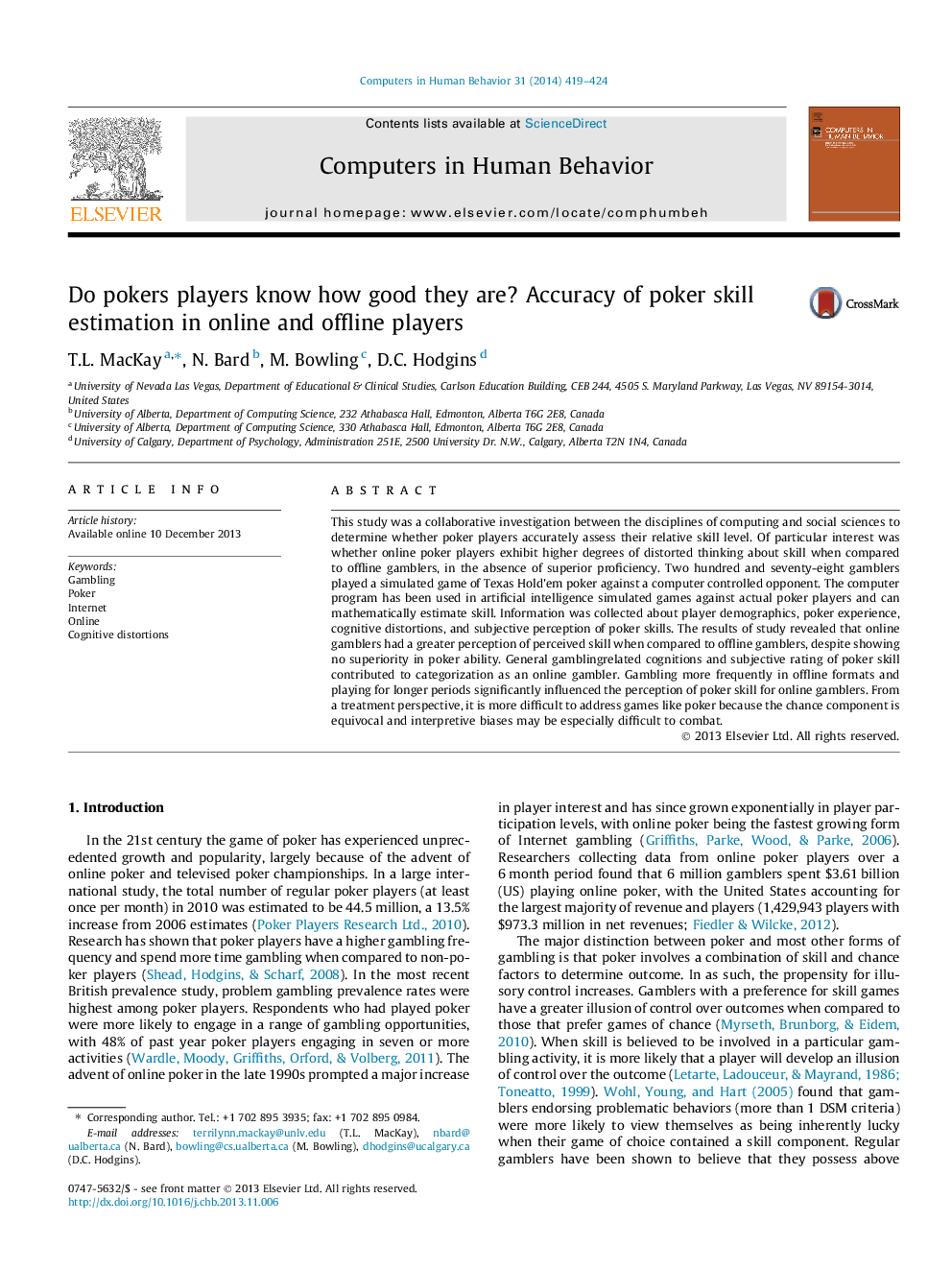| Article ID | Journal | Published Year | Pages | File Type |
|---|---|---|---|---|
| 6839528 | Computers in Human Behavior | 2014 | 6 Pages |
Abstract
This study was a collaborative investigation between the disciplines of computing and social sciences to determine whether poker players accurately assess their relative skill level. Of particular interest was whether online poker players exhibit higher degrees of distorted thinking about skill when compared to offline gamblers, in the absence of superior proficiency. Two hundred and seventy-eight gamblers played a simulated game of Texas Hold'em poker against a computer controlled opponent. The computer program has been used in artificial intelligence simulated games against actual poker players and can mathematically estimate skill. Information was collected about player demographics, poker experience, cognitive distortions, and subjective perception of poker skills. The results of study revealed that online gamblers had a greater perception of perceived skill when compared to offline gamblers, despite showing no superiority in poker ability. General gamblingrelated cognitions and subjective rating of poker skill contributed to categorization as an online gambler. Gambling more frequently in offline formats and playing for longer periods significantly influenced the perception of poker skill for online gamblers. From a treatment perspective, it is more difficult to address games like poker because the chance component is equivocal and interpretive biases may be especially difficult to combat.
Related Topics
Physical Sciences and Engineering
Computer Science
Computer Science Applications
Authors
T.L. MacKay, N. Bard, M. Bowling, D.C. Hodgins,
